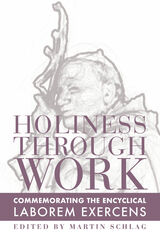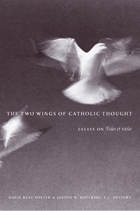
The Roman Catholic Church's first significant legislative enactment on the nature and role of the Catholic university, the apostolic constitution Ex corde Ecclesiae (1990) grew out of thirty years of dialogue between ecclesiastical authorities and academic representatives. The final document affirms the explicit Catholic identity of Catholic educational institutions and outlines provisions for maintaining that identity; the questions of how to implement its provisions have in turn created the need for more dialogue and examination. In this volume, distinguished scholars and legal experts define the key questions and explore the future implications of Ex corde for American Catholic colleges and universities.
The assertion of the Catholic identity of Catholic institutions of higher education prompts the contributors to examine the definition of Catholic education as a special synthesis of the religious and the academic, of faith and reason; and to discuss corollary issues such as secularization; the counter-cultural features of Catholic education; and the great diversity of such schools in the United States and of their sponsoring religious orders. The contributors probe the schools' relationships with the Church hierarchy, exploring in particular the role of the bishops, the degree of autonomy from ecclesiastical control, and questions of academic freedom. They also consider specific legal issues that American Catholic colleges must face, including recognition of student groups, tenure and promotion decisions, governance, student and faculty conduct, and the relationship between canon and civil law, including compliance with national and local civil rights provisions. This volume also includes the complete text in English of Ex corde Ecclesiae and the preliminary draft of ordinances from the Ex corde Ecclesiae Implementation Committee of the National Conference of Catholic Bishops.
Appearing at a time when universities must face major issues of their own identity and governance, this volume will be of interest to all faculty and administrators, diocesan authorities and legal counsel, and everyone concerned with the future of Catholic higher education.

Evangelium Vitae, or "The Gospel of Life," Pope John Paul II's 1995 encyclical, addresses practical moral questions that touch on the sacredness of human life: abortion, euthanasia and assisted suicide, and capital punishment. Tackling major moral and cultural ideas, the Pope urged "all men and women of good will" to embrace a "culture of life" instead of the prevailing "culture of death." In this book, scholars from a wide range of disciplines—law, medicine, philosophy, and theology—and various religious perspectives discuss and interpret the Pope's teachings on these complex moral issues.
The opening essays establish a context for the encyclical in the moral thought of John Paul II and examine issues of methodology and ecclesiology. A second group considers the themes of law and technology, which are crucial to the way the encyclical views the specific matters of life and death. The final section turns to the specific topics of abortion, euthanasia, assisted suicide, medical experimentation, and capital punishment.
Seeking to promote discussion between the ideas of the encyclical and other points of view, this volume does not attempt to endorse Evangelium Vitae but rather to illustrate its relevance to both private choice and public policy. It will serve as a foundation for further dialogue and allow others to approach the pontiff's thought with new awareness and insight.

This book is a timely contribution to the field of scholarship that focuses on Catholic Social Thought and is ideally suited for graduate studies and the reader interested in more serious questions in Christian theology.
Giulio Maspero, "The Bible and the Fathers of the Church on Work"
Patricia Ranft, "Work Theology in the High Middle Ages"
Angela Franks, "John Paul II's Metaphysics of Labor"
Deborah Savage, "Confronting a Technocratic Future: Women's Work and the Church's Social Vision"
Martin Schlag, "Contemplation at Work: A Theological Conversation Between John Paul II and Josemaría Escrivá"
Richard Turnbull, "Laborem Exercens: A Protestant Appreciation"
Michael Naughton, "Good Work: Insights from the Subjective Dimension of Work"
Christopher Michaelson, "Subjects and Objects in Meaningful Work"
Javier Ignacio Pinto Garay and Alvaro Pezoa Bissieres, "The Worker and the Transistor: The Dignity of Work and Business Ethics in Global Corporate Practices"
Gonzalo Flores-Castro Lingán, "The Real Work: Making the Encyclical Laborem Exercens Operational"
Geoffrey C. Friesen, "Laborem Exercens and the Subjective Dimension of Work in Economics and Finance"

READERS
Browse our collection.
PUBLISHERS
See BiblioVault's publisher services.
STUDENT SERVICES
Files for college accessibility offices.
UChicago Accessibility Resources
home | accessibility | search | about | contact us
BiblioVault ® 2001 - 2024
The University of Chicago Press









